2018 is almost a thing of the past and as I prepare to head out to Las Vegas early December to attend the Expedia Partner Conference Explore ’18 for a third year in a row, allow me to reflect on what may most likely (or not) impact travel brands in the upcoming year when it comes to digital marketing.
Voice Assistants & Voice Search
For the second year in a row, the most thought-after items for Black Friday, Cyber Monday and Holiday sales are voice-activated devices. Think Google Home or Amazon Alexa, for example.
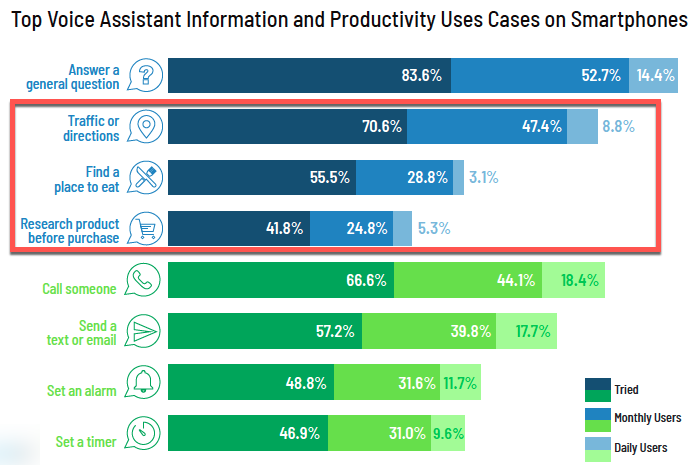
When I wrote How Voice Search Will Impact Travel Marketing earlier this year, it seems to have struck a chord with many folks within the hospitality industry.
I was subsequently asked to give webinars for hotel associations in the Spring and conduct a workshop at Travel Exchange (NTA) in Milwaukee last month, to name just these two examples. And not a day goes by when I won’t see a report or in-depth article about this topic.
But how will it truly impact travel marketing in 2019?
The jury is still out on how much voice assistants will impact traveler behavior, in particular when it comes to searching and booking, as many of us still strongly rely on visual supports to make decisions for that next trip, that next cruise or that next destination.
A voice result can hardly replace a photo or video result yielded by search engines or social media, for example.
Yet, voice search can be expected to have an impact on how search engines yield results in particular when it comes to locally-based searches, i.e once at the destination.
Thus, travel brands, in particular hotels and restaurants, will want to further investigate how their website should be optimized for given keywords when searched vocally versus traditional text search.
“Mobile voice search is three times more likely to be locally-based than text search!” – Search Engine Watch
AR/VR/AI And Other Fancy Acronyms
Will Virtual Reality (VR) go down the path of the QR code or will it truly fashion a new wave of marketing opportunities? Will Augmented Reality (AR) survive the quick rise and fall of popular gizmos such as Pokemon Go? And will Articial Intelligence go down as yet another example of a buzzword worth no more than a few bitcoins?
No, no, and no. Of course, you can read between the lines here that I am perhaps a bit skeptical when it comes to these disruptive technologies and their true impact on most travel brands’ daily digital marketing activities. But that’s not the say we can’t expect some level of action on this front in 2019.
Virtual reality is being used by many destinations and hotel companies to help travel agents and other parties inspire and sell their products and services, while augmented reality has been an increasingly important component for many attractions and museums.
In the video above, you can see a great example of VR technology being used in ads by Cathay Pacific airline to showcase their lounge, aircrafts and more.
As for AI, it is already being weaved into various chatbots, messenger apps and automated communications at various levels, helping brands making savvier choices and impact with customers. Not to mention predictive models being developed by larger travel organizations, tapping into machine learning to see how various online processes can be improved.
It’s just perhaps not the silver bullet some folks make it out to be…
Facebook Zero
Can we talk about Facebook for a minute, here? Like seriously, was 2018 the Year-From-Hell for them, or what? In the past year alone, I must have conducted about 50 different website & social media audits for travel brands – mostly hotels, inns, bars and restaurants, but also attractions and destinations.
One common thread? Facebook organic posts have reached abysmal levels. In fact, for many Pages, organic reach level is now at the infamous “Facebook Zero” level, with nearly no reach at all. Unless you pay, that is.
Now sure, there are ways to yield some better results by asking questions, creating surveys or promotions, for example. And by banking on user generated content, or perhaps dynamic Facebook live videos.
There are still quite a few Pages that see engagement rates as good as ever, but let’s be honest: these Pages are few and far in between!
Even a popular account such as Tourism Australia’s Facebook Page continues to get good results, but nowhere near the engagement levels from a few years back. So what gives?
Facebook is now a mature platform, with a mature userbase. A great place to stir conversations and gain traction with dynamic content with a Page or relevant industry-related Group.
It has also morphed into more a customer service outlet, in particular with its Messenger chatbox.
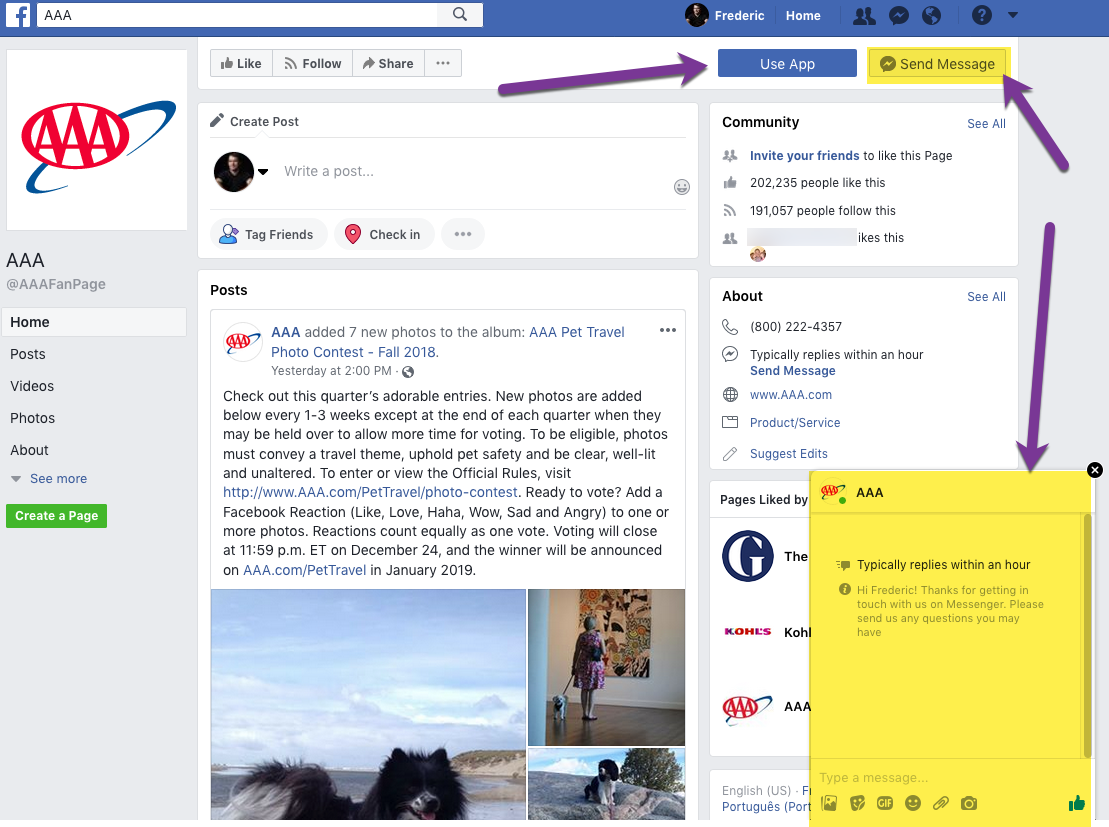
In coming weeks and months, we can expect even more interesting developments from Facebook’s advertising platform, which is truly its golden goose. There are now ways to advertize across Facebook desktop and mobile, Facebook Stories, Audience Networks, Messenger, Instagram newsfeed and Stories, and even on WhatsApp.
Great features are released almost everyday… along with just about another power outage or PR story that counters the positive news!
So there’s your Facebook paradox for 2019. On one hand, organic post performance and community management on a deep downward spiral. And on the other hand, pertinent opportunities with Facebook Ads across its various placements within the Facebook ecosystem including Instagram, Messenger and WhatsApp.
Stories, Stories, Stories
While the Facebook platform struggles, there is a silver lining for Zuckerberg and friends: Instagram! The image-centric mobile app, acquired by Facebook back in 2012, has reached the 1 billion userbase mark over the past summer. And more importantly, there are now more than 400 million daily active users logging onto its popular Stories.
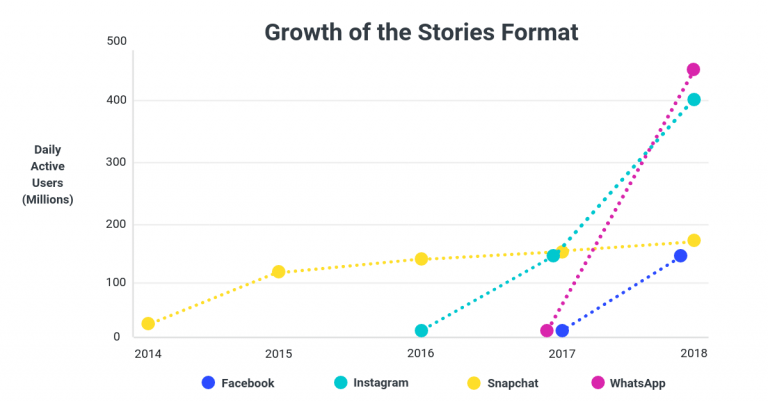
So while Stories are not (yet) a popular format on Facebook itself, with 180 million daily active users, we can see how it has become an instant hit on both Instagram and WhatsApp, to the obvious detriment of Snapchat…
My prediction for 2019? I expect many, many travel brands to start experimenting – if they’re not there yet – with a business profile on Instagram. This, in turn, will lead to more Stories, videos on IGTV and media cross-promoted to Facebook Stories (or newsfeed).
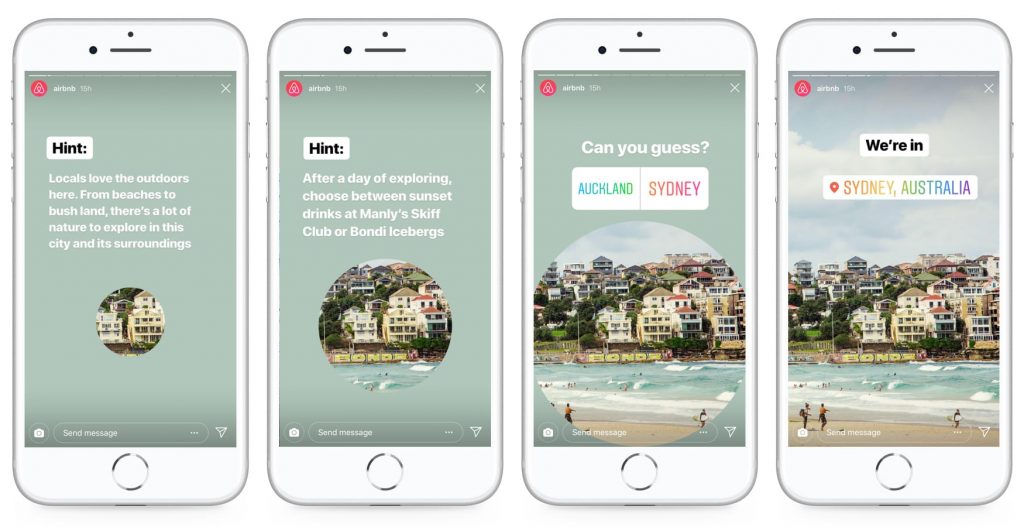
We can also expect more advertising on Instagram, in particular within Stories, since this is where users spend most time. According to Facebook’s latest (Q3, 2018) public results, Stories format generate 25% of all Instagram ad revenues. Since Instagram now represents 16% of all Facebook revenues… well, you get the picture, right?
One last thing: Microsoft, the parent company behind Linkedin, just announced a similar feature is coming shortly, called Student Voices, that will mirror Snapchat Stories. That’s right: Stories. On. Linkedin. What is this world coming to, I say…
TripAdvisor Going Social
Okay, I will be honest: I really have no clue what to think of TripAdvisor’s most recent shift towards a social media platform. You may have seen or read the news back in September, when TripAdvisor announced this? Check out the video below, explaining a bit more what can be expected:
Now I am an avid user of TripAdvisor but still can’t figure out how or why I would necessarily want to use it as a social platform for travel. More importantly, will users understand this new shift away from a traditional review sites towards a social media?
It seems users never really quite understood it was a transactional site either, mind you. Is it too little, too late?
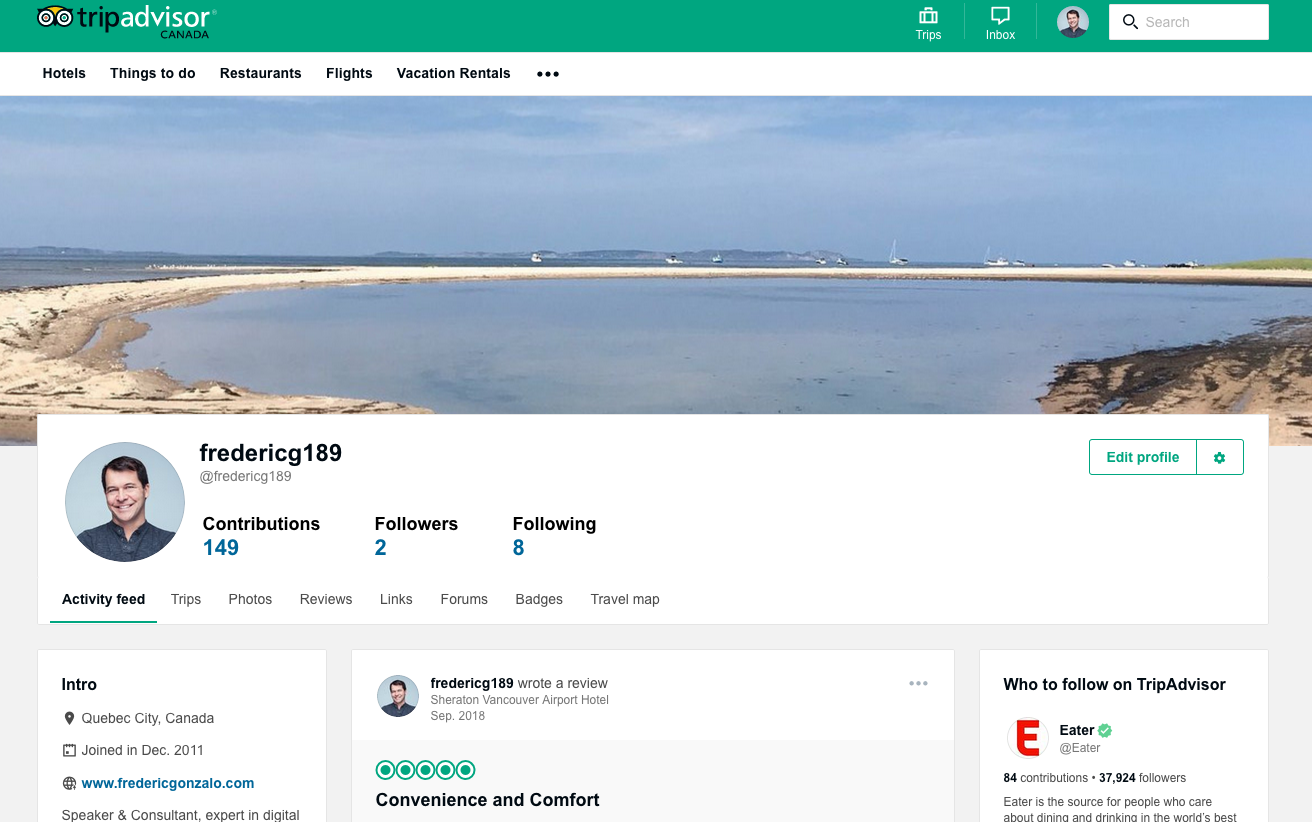
Google Becomes An OTA?
Last but not least, we gotta talk Google, right? First of all, according to Revinate’s latest annual Hotel Benchmark Study that came out earlier in 2018, Google is presently the number two site for hotel reviews worldwide. It sits right behind Booking.com, and ahead of TripAdvisor and Facebook, which made it into this top 4 that holds on to 75% of all reviews online!
In 2019, we can expect Google to become the number one site for hotel reviews, ahead of Booking and Facebook, while TripAdvisor will most likely fall back into 4th place. Perhaps this is why TripAdvisor is moving away from being a review-centric site?
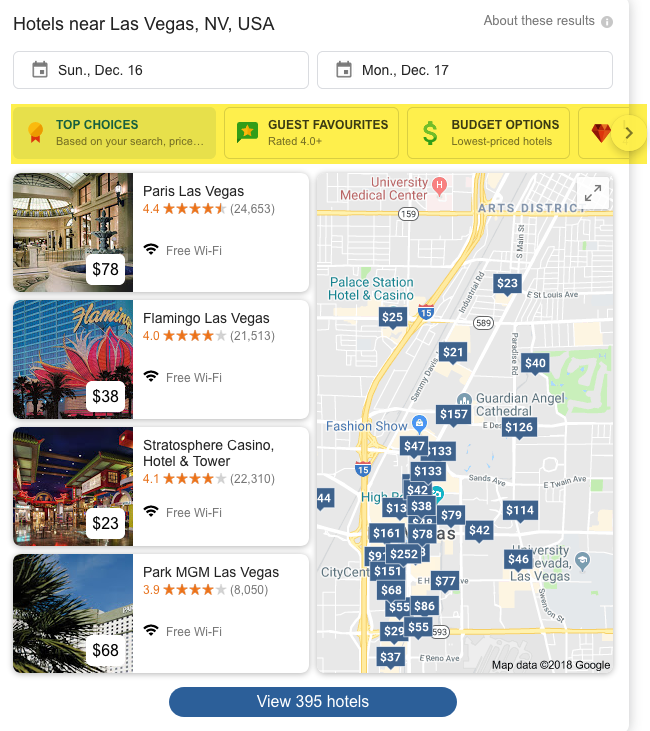
For years now – in fact, ever since Google acquired the online travel software ITA back in 2010 – many industry pundits have predicted that Google would eventually become a full-fledge online travel agency (OTA). From Flight Search to Maps to its Google Trip mobile app and everything in between, the potential is certainly there.
This is particularly the case with hotel search, as can be seen above in the latest iteration of Google’s knowledge graph, highlighting various hotel options, for tonight only, based on reviews, budgets or recent user behaviors online.
I still don’t believe Google will jump into the fray, as Expedia, Ctrip and Priceline groups represent partners that are just too big to piss off. In fact, Skift estimates the travel vertical to represent 12% of Google’s total ad revenues worldwide! But then again, I never thought I would see the day when Linkedin would launch Stories…
What do you think will be the game-changer or key trend for digital marketers in travel in 2019?










Leave a Reply